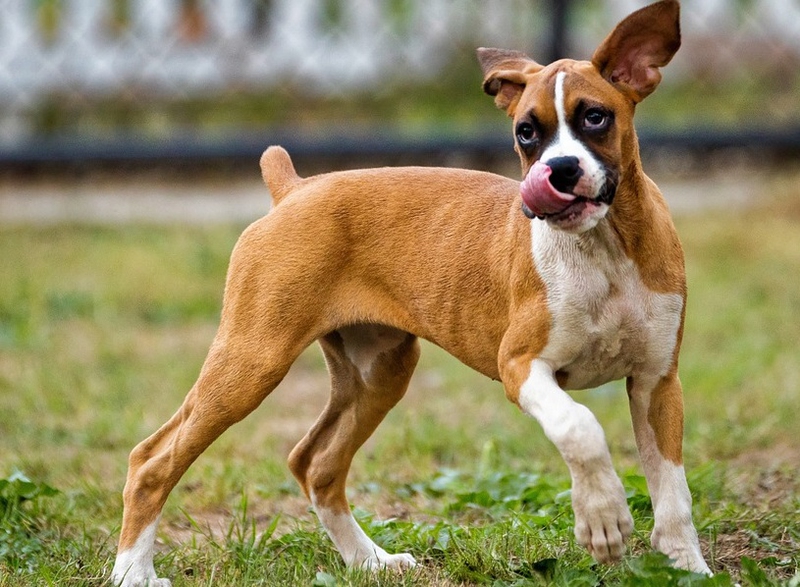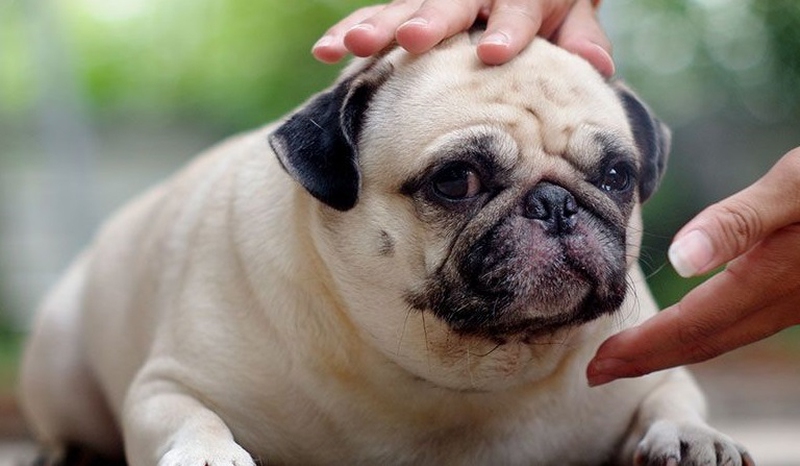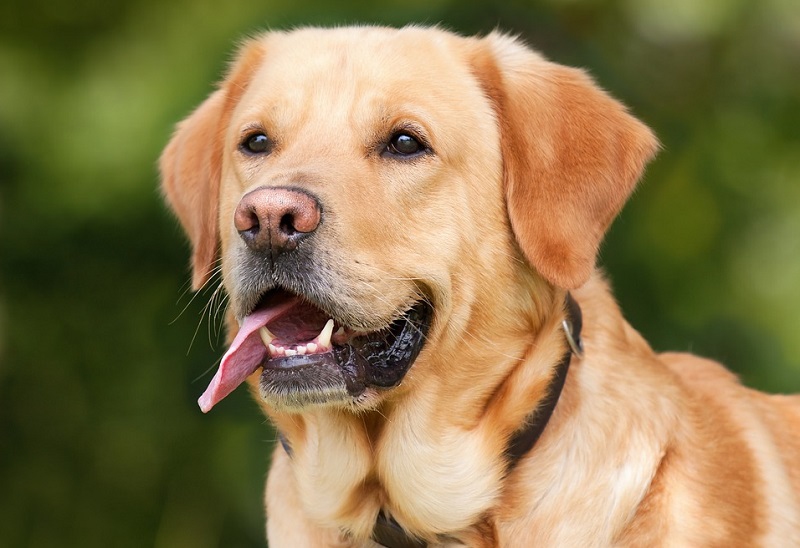A dog suffering from sleep incontinence may be as concerned about the problem as the owner is. A housebroken dog is trained not to urinate in the house. Hence, sudden wetting may be not a sign of bad behavior. Take the dog to the vet for checkup, keep it comfortable, and clean any stains on its skin or hair. If you are among dog owners that complain “my dog pees in her sleep”, here are the causes of this condition.

My Dog Pees in Her Sleep, Why?
Estrogen Responsive Incontinence
This condition is common with spayed female dogs. A female dog requires a specific amount of estrogen for its bladder to maintain its muscle tone and remain closed. The bladder muscles in spayed dogs weaken as they grow older due to reduced levels of estrogen, causing urine to leak out in their sleep or rest.
The condition affects neutered dogs especially older and middle-aged female dogs but sometimes can affect younger female and male dogs. The incidence rate of incontinence in spayed female dogs is estimated at 5%-20%.
Diagnosis and treatment:
You can control the condition easily with medication but it is often life-long. The diagnosis of this condition is done by ruling out other causes of urine leakage and/or the dog’s response to medication. Most dogs respond well to medication. Diethylstilbestrol, an estrogen product, and phenylpropanolamine (PPA) are the standard medication for estrogen responsive incontinence. Alternative treatments for the condition include placing a constricting ring at the urethral sphincter or injecting collagen.
Increased Thirst
If you have been looking for reasons "why my dog pees in her sleep", you need to check the amount of water that your dog takes. A dog that drinks lots of water urinates more. Consequently, its bladder distends to the maximum especially at night. The distention may overpower the urethral sphincter and cause urine leakage.
The way to correct this condition is to identify and correct the cause of the increased thirst. Increased thirst may result from urinary tract infection, kidney disease, hormonal imbalances, and liver disease. The hormonal imbalances include Addison’s disease, diabetes insipidus, Cushing’s disease, and diabetes mellitus. Addition causes of increased thirst include diet changes and medications such as anti-seizure medications, diuretics, or corticosteroids.
Neurological Disorder
The neurological signals that lead to urine retention and removal involve the spinal cord, brain, and nerves that lead to the urethral sphincter and the bladder. Any disease that affects this system will lead to sleep incontinence. The incontinence is often accompanied by neurological symptoms such as weakness or disuse in the hind leg and abnormal bowel movements. The neurological disease determines the kind of therapy administered.
Plumbing Issues
Puppies suffer from sleep incontinence mostly because of a birth defect referred to as an ectopic ureter. Ureters carry urine from kidneys to the bladder. The defect is referred to as ectopic because an ectopic ureter empties urine in the urethra instead of the bladder.
An endoscope is passed into the bladder and urethra to diagnose the condition. An alternative diagnosis is an imaging study through CT scan after administering a contrast material. Laser therapy and surgical procedures are also used to correct incontinence resulting from ectopic ureters.
Urinary Tract Infection
Bacteria may invade and colonize the urinary bladder and/or the upper part of the urethra leading to an infection. The bacteria impair the local defense system. Older and female dogs are more susceptible to this infection.
The main symptoms of urinary tract infection include urination (sometimes) when the bladder is touched, malodorous or cloudy urine, and difficulty in urinating. Other symptoms include urinary incontinence, hematuria, and frequent urination in small amounts. Most dogs respond well to antibiotics and recover quickly.
Defects in Urethral Sphincter
Defects in the urethral sphincter affect its function and lead to inflammation, prostate gland diseases, urethral or bladder stoners, and tumors. The underlying disease determines the appropriate treatment.
The Growing Age
One reason why you are complaining, “my dog pees in her sleep” could be the aging process. Dogs are unable to control their bladders as they age. Incontinence is common in elderly dogs and older spayed females. Incontinence resulting from age may be sudden, improve for a while, and then continue in spells that are more frequent. Your veterinarian should rule out any disease and prescribe medication where necessary.
How to Care for My Dog
Provide Cozy Homecare
If your dog has sleep incontinence, keep it clean, dry, and comfortable.
Spread a waterproof sheet or training pad on its bed and then place clean towels or blankets on top.
Talk it for a walk first in the morning and last thing at night, and every time she wakes up from sleeping. Buy dog diapers and ensure that its bed is dry every night.
Do not reduce its water intake because it could affect its health.
Maintain Great Hygiene
Dogs with sleep incontinence are susceptible to infections and need special care. Red and raw skin and dirty, matted hair in the genital area are signs of an infection. Use lukewarm water and a soft, clean cloth to wash the dirty area. Avoid using shampoo because it may irritate the skin. Dry the area with hair dryer or a soft towel. Keep your puppy busy all day so that it does not over-clean the genital area.
Go to See a Vet
If you cannot figure out the concern “my dog pees in her sleep”, take your dog to the vet. The vet will determine the underlying cause and recommend proper treatments. Your vet will ask questions about the amount of water that your dog takes and the urination frequency. The vet will also require information on the duration of the incontinence. Medications including hormones may also be administered to improve muscle tone in the bladder.





View All Comments /Add Comment